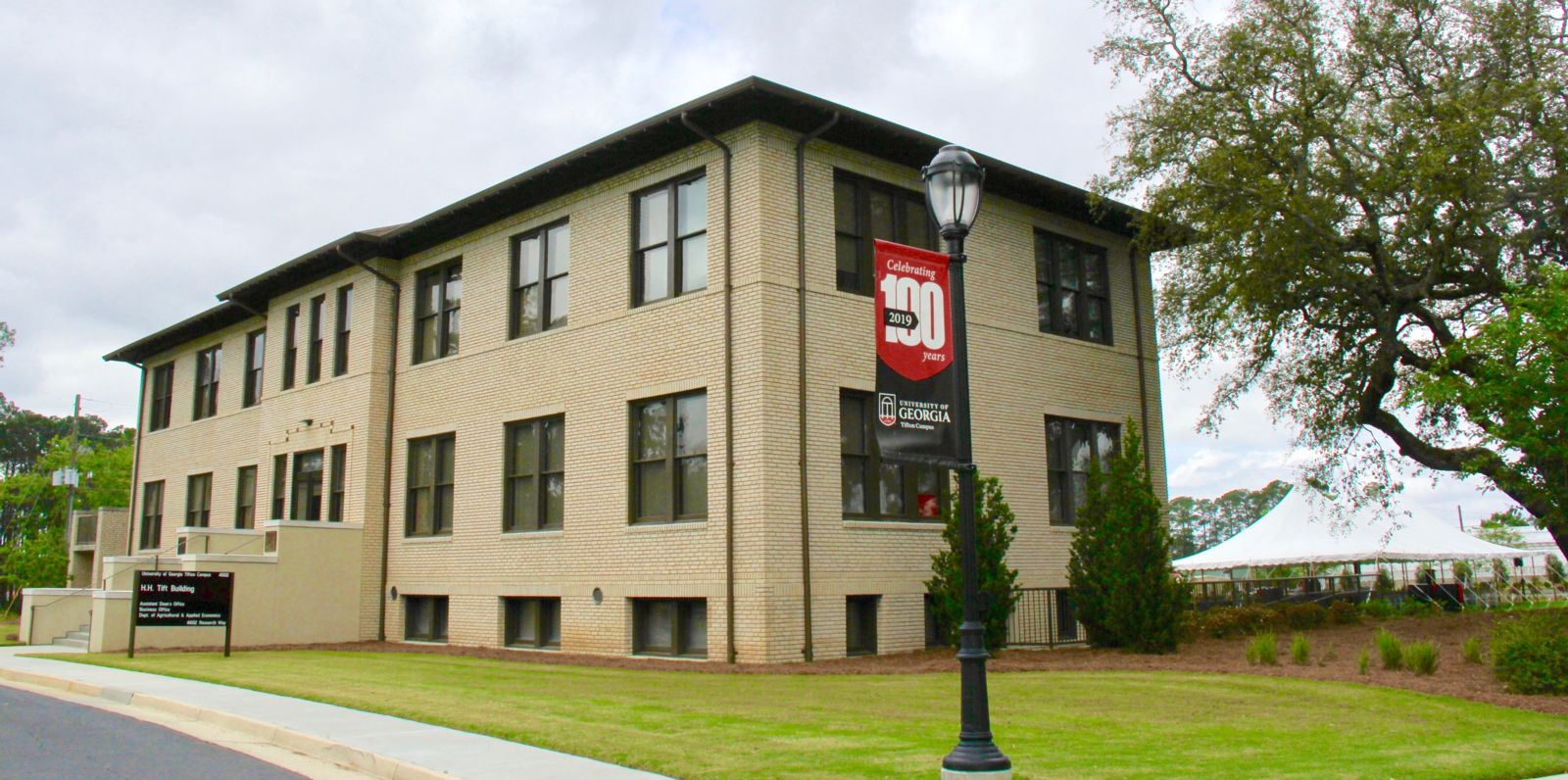GFB News Magazine
UGA–Tifton Campus turns 100
Posted on August 15, 2019 12:00 AM
By Jennifer Whittaker
The UGA College of Agricultural & Environmental Sciences (CAES) is marking a major milestone this year as the UGA-Tifton Campus turns 100. Georgia agriculture has benefited greatly from the groundbreaking research the college has conducted in Tifton since 1919.
The UGA-Tifton Campus was originally known as the Coastal Plain Experiment Station. After the Georgia Experiment Station was established in Griffin in 1888, farmers saw the need for a similar research farm in South Georgia that could address the warmer climate and sandier soils farmers south of the “fall line” deal with.
Story continues below

Captain Henry Harding Tift, the founder of Tifton, was a major advocate for the Georgia Legislature establishing an experiment station to conduct ag research and share the results with farmers to improve South Georgia agriculture. He donated 206 acres north of Tifton for the experiment station to be built on and $25,000 to finance it.
The Georgia Legislature passed an act to create the Coastal Plain Experiment Station (CPES) in August 1918. In May 1919, the CPES Board of Trustees chose Tifton as the site for the experiment station over Baxley, Savannah, Sylvester and Waycross.
UGA administrators, faculty, staff and members of Georgia’s ag community gathered at the UGA-Tifton Campus Conference Center May 3 to mark the anniversary.
“Agriculture is Georgia’s number one industry, and the UGA-Tifton Campus has played a vital role in helping our farmers build this industry and sustain its success,” UGA President Jere Morehead said.
Other speakers included Georgia Commissioner of Agriculture Gary Black, U.S. Rep. Austin Scott, UGA CAES Dean Sam Pardue, UGA-Tifton Assistant Dean Joe West and USDA National Institute of Food & Agriculture Director Scott Angle.
“Of all the things we do in Washington, nothing is more important than protecting our nation’s food supply. If a nation can’t feed itself it can’t defend itself,” Scott said. “The science and education that comes from this campus promotes food security and peace around the world.”
Glenn Burton (forages & grasses), Bill Branch (peanut cultivar breeder) W.T. Brightwell (blueberry cultivar breeder), Frank McGill (peanuts), Wayne Hanna (turf grasses) and Peggy Ozias-Akins (peanut genome mapper) are some of the world-renowned scientists who have worked at the UGA Tifton Campus.
Angle, who served as CAES dean from 2005-2015, shared he has learned, while traveling the world, that the UGA Tifton campus is known globally as the research home of Glenn Burton and Wayne Hanna. Burton is frequently referenced as one of three fathers of the Green Revolution, Angle said. Hanna is known for developing turf grass varieties used at many significant sports venues worldwide.
“He [Burton] is known for the pearl millet and forage grasses he developed to feed animals. Burton’s research has probably saved hundreds of millions of lives,” Angle said. “One hundred years - you can get a lot of work done in that amount of time. The amount of work this campus has accomplished boggles the mind. That’s why the Tifton campus is known around the world, and I know great things are yet to come.”
UGA-Tifton graduated its first class of students in 2004. The campus offers undergraduate programs of study in agribusiness, ag education, agriscience and environmental systems and biological science. Master’s degrees are available in agricultural & environmental education and plant protection & pest management.
“The staff and faculty here at this campus get up each day to do research in cutting edge science that has been a tradition at this campus. Our scientists continue to lead the way with greater discoveries,” Pardue said.
The UGA-Tifton Campus is also home to the Future Farmstead, which opened in 2015. This energy independent home/lab is dedicated to developing and demonstrating technologies for net-zero energy homes and sustainable gardening. The farmstead highlights an array of wireless internet control systems, cameras and other sensors can help farmers remotely manage livestock, distant fields, irrigation systems.
To mark the centennial anniversary, the campus planted a formal garden behind the H.H. Tift Building using plant and shrub varieties UGA CAES researchers developed. UGA-Tifton also published a hardback pictorial book, “A Century of Impact: From Experiment Station to Campus.” The book is available at www.ugaextensionstore.com for $33, which includes shipping and tax.